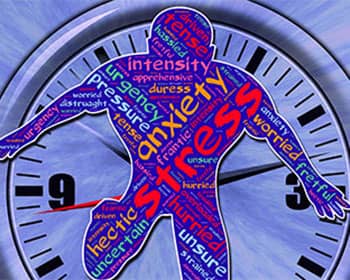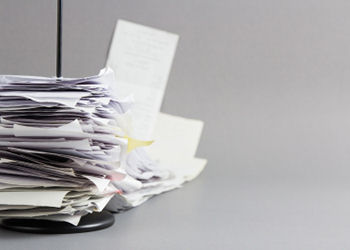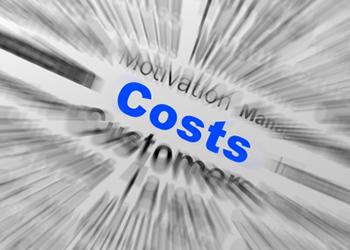The most popular set-up for self-employed workers nationally is operating as a sole trader, who makes up 59 per cent of the UK’s self-employed workforce.
The process of setting up as a sole trader is easier and more straightforward than other methods of contracting, such as setting up a limited company, hence it being a popular choice for the newly self-employed.
It’s easy to see why this method of contracting is so popular. Among its benefits, there are many allowable expenses that sole traders can claim, but doing so correctly and thoroughly is key to optimising your finances. Businesses will inevitably incur various running costs, and sole traders can deduct some of these costs from their taxable profit, as long as they’re classed as allowable expenses.
Here Joanne Harris, Technical Commercial Manager at SJD Accountancy, an accountancy firm that works with sole traders, freelancers and contractors, details what expenses a sole trader can and should be claiming for.
Traditional accounting vs cash basis
Firstly, sole traders must pick an accounting method and it’s imperative to consider whether traditional accounting or cash basis is best for you.
Many businesses tend to use traditional accounting, sometimes also known as accrual accounting, where you record income and expenses by the date you invoiced or were billed.
For example, you invoice a customer on 29 March 2021, then you record that invoice for the 2020 to 2021 tax year - even if you did not receive the money until the following tax year.
Cash basis is an alternative way to work out your income and expenses for your self-assessment tax return, and is considered well suited to sole traders or partners.
If you run a small business, cash basis accounting may be better for planning ahead because you only need to declare money when it comes in and out of your business.
At the end of the tax year, you won’t have to pay Income Tax on money you didn’t receive in your accounting period.
Claiming for travel expenses
All self-employed workers can claim allowable business expenses for:
• vehicle insurance
• repairs and servicing
• fuel
• parking
• hire charges
• vehicle licence fees
• breakdown cover
• train, bus, air and taxi fares
• hotel rooms
• meals on overnight business trips
You cannot claim for:
• non-business driving or travel costs
• fines
• travel between home and work
Sole traders have a choice as to how they claim business mileage expenses. You can either claim the full running costs, such as insurance, repairs and servicing and fuel, with a suitable percentage taken off for any personal use of the vehicle.
Alternatively, you can make things simpler and just claim HMRC’s business mileage ‘flat rates’ for the journeys you make, which is available for all cars, motorcycles and goods vehicles, such as vans and lorries. These rates are 45 pence per mile for the first 10,000 miles, then 25 pence per mile for any subsequent travel.
Quite often, sole traders use business mileage ‘flat rates’ unless the vehicle is a specific tool of the trade, such as a van for a delivery driver or a motorbike/moped for a takeaway rider. Often in these cases, the full running costs can be claimed with a potential personal percentage taken out.
Clothing and uniform
It is possible to claim tax back on uniforms used directly for your business and there is a laundry allowance from HMRC on the Government website. The guidelines also cover more than just branded uniforms for your business - specific clothing required for individual job roles can also be qualify. For example, the cost of protective clothing for tradesmen or PPE.
Please note, tax relief is only available on clothing used solely for work purposes and you must be able to prove this to be the case. Therefore, if your clothing could be included in an “everyday wardrobe” and is not strictly for business use only, it cannot be considered for a work clothes tax rebate.
Allowances when running an office
Sole traders can claim office supplies as allowable expenses where the expense would normally be used for less than two years, such as stationery, postage and printing costs.
Any equipment used wholly and exclusively for business purposes can also be claimed for, which includes computers, phones and computer software. If there is some personal use on this equipment, bills can be apportioned.
Standard costs for running an office, such as renting costs, utility bills, property insurance and business and water rates are also allowable expenses.
While you cannot claim expenses or allowances for buying premises, you can claim expenses for the repairs and maintenance of existing business premises and equipment.
Working from home
For those who use their residential home as an office, it is possible to get tax deductions but only for expenses incurred solely for business use.
Where one address is named for both residential and business use, it is also possible to claim a proportion of costs for bills such as utilities, Council Tax, mortgage interest or rent, internet and telephone use.
With this, however, you’ll need to find a reasonable method of dividing your costs between business and personal use, as only the business use costs are eligible.
For example, you could divide by the number of rooms you use for business or the amount of time you spend working from home.
Marketing, subscriptions and entertainment
As a sole trader, there can sometimes be costs incurred as a result of marketing and advertising work. Many workers are unaware that some of these marketing needs can qualify for tax relief.
For example, the following can be claimed for:
• advertising in newspapers or directories
• bulk mail advertising (mailshots)
• free samples
• website costs
• trade or professional journals
• trade body or professional organisation membership, if related to your business
However, you cannot claim for:
• entertaining clients, suppliers and customers
• event hospitality
• payments to political parties
• gym membership fees
• donations to charity (although you may be able to claim sponsorship payments for these)
External training and development
If you are keen to improve your knowledge and skills in your area of expertise, deciding to invest in external training courses could be a worthwhile investment.
Training courses are deemed an allowable business expense by HMRC, meaning they qualify for tax relief as long as the course is relevant to your current profession and geared towards furthering your career in your industry. If you are considering enrolling in a training course that will enable your business to enter an entirely new marketplace, this is not allowable.
For example, if you are an electrician that needs to enrol in a refresher course to understand the latest regulations, this expenditure will be tax-deductible. However, if you are an electrician and would like to complete a training course to learn Spanish, this would not be covered.
Ultimately, correct expense claims are imperative to ensure sole traders are working both compliantly and tax-effectively. Self-employed workers should always consult an accounting expert to ensure they are making accurate claims based on their business needs and costs.
Joanne Harris
SJD Accountancy







